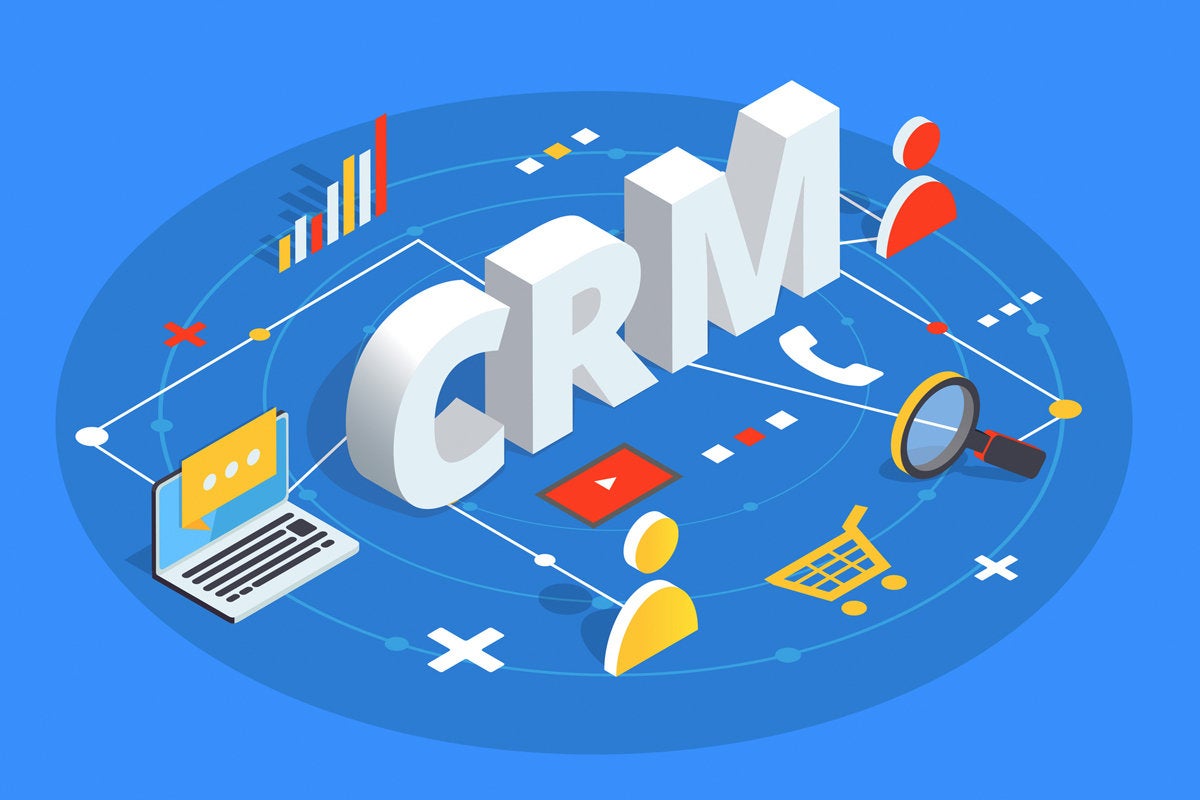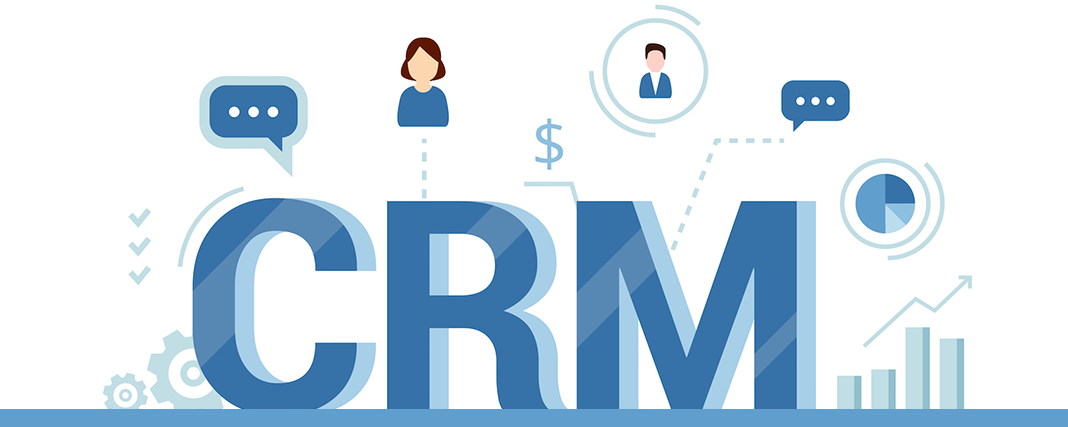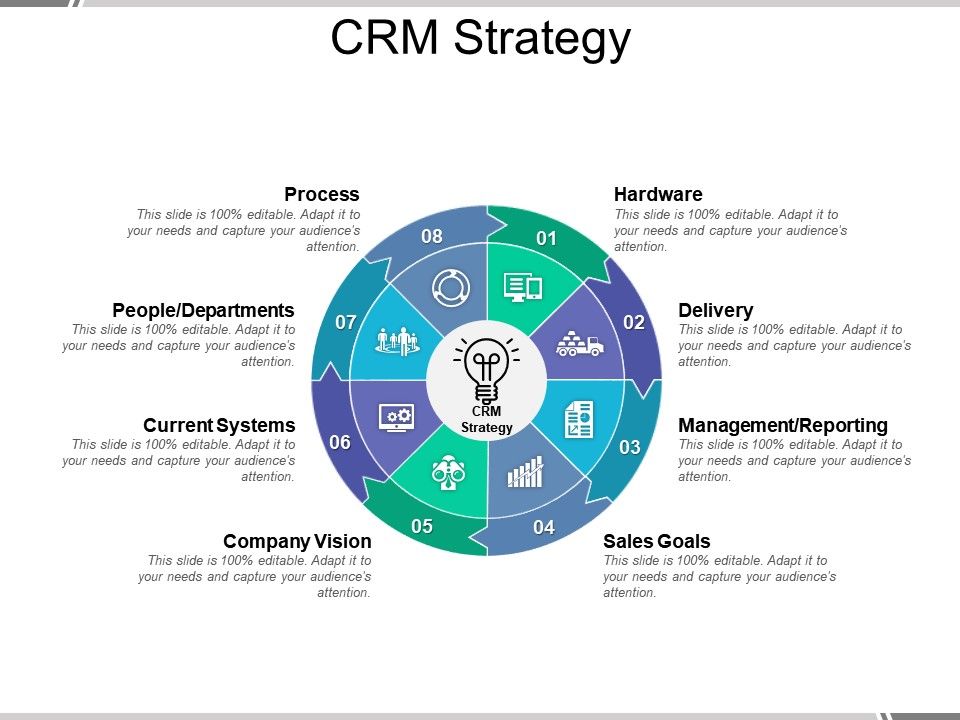In today’s era, Businesses changed from being transactional to relational.
Meanwhile, Organizations make sure that customers are satisfied with their products and services for increasing customer loyalty and retention.
One satisfied customer can bring 6 new customers with him while on the contrary, one dissatisfied customer carries off 6 customers.
That’s why they start using this approach Customer relationship management for identifying, acquiring, and retaining the customers, and therefore managing a healthy relationship with them.
Here in this chapter, we will discuss:
What is CRM?
Customer relationship management (CRM) is a mixture of practices, strategies, and technologies that businesses use to manage and analyze customer interactions and data all over the customer lifecycle.
So, It helps businesses to improve a relationship with their existing customers and creates customer loyalty and retention.
After all, customer loyalty and retention are qualities that affect a company’s income. Hence, It is a management strategy that helps in increasing profit for a business.
Meanwhile, It helps businesses improve customer experience, satisfaction, retention, and service.

Why CRM is important?
Today, every business is full of competition, so it is more important than ever to gain new customers and retain the existing ones.
Customer Relationship Management makes your company more customer-centric so that you are more likely to get 60% of more profit than without CRM business.
So, A good relationship with your customer can bring you more loyal customers.
CRM Software
Hence, Nowadays, Customer relationship management is done by some software and applications, and it is the biggest software market in the world.
So, CRM software is a tool to bring your sales, marketing, and customer support activities together, and simplify your process, policy, and people in one platform.
It also helps you to manage the relationship between team members, vendors, partners, and collaborators.
So, Customer relationship management software takes data from communication channels, the company’s website, telephone, email, live chat, marketing materials, and social media.
Hence, It enables businesses to learn more about their target audience and develop the best product according to their customers’ needs and desires.
Also, Through the CRM system, companies stay connected to customers, processes, and improve profitability.
How Can a CRM system Grow Your Business?
- It helps to make improvements to your backend.
- Identify and categorize sales opportunities.
- Also, Helps to Increase preferences from existing customers.
- It helps to offer better customer service.
- It helps to develop products and services.

Components of CRM
Mainly CRM software integrates customer interactions and information into a single database so that company users can more easily access and control it.
1. Marketing Automation: Marketing automation is a component of Customer Relationship Management software. It can automate recurring tasks to minimize marketing efforts.
For example, as sales opportunities come into the system, they automatically send the marketing materials, offer details, and product pricing details via email or social media or notifications.
So, The main aim of marketing automation is to increase sales by converting potential customers.
2. Salesforce Automation: Hence, In the CRM software, Salesforce automation is a tool that traces customer interactivity and automates many business functions of the sales cycle that are necessary to follow and attract new potential customers.
3. Call center Automation: Meanwhile, In managing the excellent relationship with the customer CRM system, integrate call centers. So, Call center automation helps assist customer problems through pre-recorded audio and information. It also allows agents to handle customer requests and simplify customer service processes.
- Geo-location technology or place-based services: Also, These systems can generate geographic marketing campaigns based on customers’ physical location. It is also used to serve customers and find out new potential customers based on site.
- Workload automation: These systems systematically organize all work so that employees do their work in a minimal effort with less time.
- Sales lead management: So, Through these systems, sales team manage all inputs, and analyze data for converting potential customers.
Types of CRMs
1. Sales CRM
So, The main aims of comapnies is making profit, and sales can make a profit. Hence, CRM provides better features, processes, and advanced tools for making sales through customer interactions.
Meanwhile, It allows you to build a sales funnel, track leads, and find sales opportunities. It simplifies workflows and enables customer data such as chat, voice, email, and social media touchpoints on a single platform.
So, This system is all- in – one sales CRM system for sales professionals. Hence, It involves Sales Leads, contacts, opportunities, accounts, quotations, and proposals, etc.
Below are some names of few softwares:
- Pipedrive
- Close
- SugarCRM
- Dialpad
2. Service CRM
Customer service is a vital part of customer relationship management. It contains exclusive tools for customer service and support.
It is used by multiple departments such as sales, marketing, and customer service professionals to enhance customer experience and resolve customer inquiries quickly and smoothly.
So, These systems have customer phone, email, online forms, live chat, social media contact, and online interactions.
When a customer raises any service related issue, service CRM identifies the problem and sends it to the relevant concern department to resolve the customer’s issue as soon as possible.
There are some service CRM listed below:
- Agile
- NextOS
- Zendesk
- SugarCRM
3. Marketing CRM
Marketing is the most essential part of any business.
It establishes a better relationship and building your brand with the customer.
Basically it automates all marketing activities to make your product brand top of other brands and also more likely to increase sales.
Also, it helps you to know how many engagements you are getting on your website, what marketing links customers are more likely to click, and the personal data they shared on a form.
Marketing CRM form marketing campaigns and also automate them across all marketing channels, get information about the status of mail sent whether it is opened or not by the customer, click-through rate, and use customer interactions to modify the landing page.
Some marketing CRMs are:
- HubSpot
- Drip eCRM
- Keep – (formerly Infusionsoft)
- Creation (previously BPM’Online Marketing)
- Zendesk Sunshine
- Mailchimp
CRM for Small Business
There is some CRM system that is made only for small businesses.
Small business owners are looking out for simple, automatic layout and operating in low data interactions, this software integrate and manage their small business.
If you have been running a small business, then you can use following software for your business:
- Nimble
- NoCRM.io
- Copper
- Capsule
- Insightly
- Zoho
- Freshsales
- HubSpot CRM

CRM Strategy
- Set a target
- Be a customer-centric company
- Remove all communication barriers
- Track your customer interaction
- Sync every data on your system
- Measure, analyze and improve
Examples
Social CRM: It includes attracting potential customers directly from social media like Facebook, Twitter, LinkedIn, etc. social media is an open platform for all customers to share experiences and promote your products as well.
Contact Centre: Sales and marketing teams acquire data and update the CRS system with information throughout the customer lifecycle.
The agents of contact centres collect data and revise customer records through service calls and technical support interactions.
Mobile CRM: These applications are made for smartphones, and tabs are a tool for sales and marketing employees. Through mobile CRM, they can access customer data anywhere and do their work when they are not in the office.
Conclusion
Nowadays, businesses are more concerned with customer-centric rather than only sales-centric.
That is why customer relationship management comes into existence.
It is now in the software, which records all customer interactions and sends output to the user when required.
FAQs
The CRM software market is the biggest software market in the world.
Customer relationship management is a mixture of practices, strategies, and technologies that businesses used to manage and analyze customer interactions and data all over the customer lifecycle.
CRM software is a tool to bring your sales, marketing, and customer support activities together, and simplify your process, policy, and people in one platform.
It also helps you to manage the relationship between team members, vendors, partners, and collaborators.



